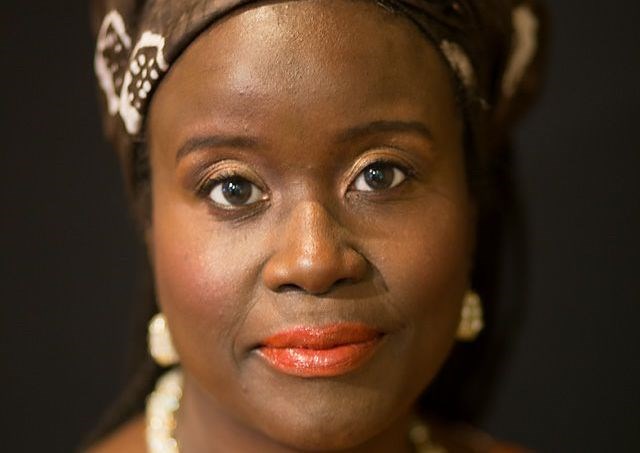Ginelle Skerritt is "enthusiastic" about her appointment as CEO for the York Region Children's Aid Society (CAS) but calls being the agency's first Black CEO in Ontario history "bittersweet."
"It's good to be the first and it signals that CAS is ready for an important change, but it's also kind of very telling that it's 2021 and to me that's not really a huge moment for celebration.... this is a first and that shouldn't really be."
Skerritt, who officially took on the position Oct. 12, said being the first Black CEO shines a light on a nationwide problem of people not being properly recognized on their merit.
She's well aware of the accusations of bullying and racism — particularly anti-Black racism — made toward the York Region branch's senior leadership in recent years, said Skerritt.
"Fundamentally, we cannot be looking at the well-being of the children as an organization if we don't have well-being within the organization."
In 2020, allegations of racism, harassment and bullying were made within the agency prompting an operational review by the Ministry of Children, Community and Social Services.
The 46-page report found that staff experienced a "culture of fear" with staff calling senior leadership a “dictatorship.”
Most damning were the allegations of "anti-Indigenous, anti-Semitic, and anti-Muslim behaviour; ableist and ageist behaviour," with anti-Black racism being the most widely experienced.
An operational plan was developed based on the 35 recommendations in the report.
"Demonstrated experience and understanding of diversity, equity and inclusion was identified by the Board of Directors as a required qualification for the CEO position. Ginelle demonstrates exceptional leadership skills, an impressive understanding of diversity, equity, and inclusion and a strong vision on how to address the challenges facing York Region Children’s Aid Society at this time," said Tahir Shafiq, chair of the board of directors of York Region Children’s Aid Society.
Her "lived experience with anti-Black racism will definitely play a factor" in how she does her job and how she manages the environment at the agency, Skerritt said, but she is quick to point out the work CAS has already done in designing a work plan to address the issues.
"More so than just being a Black person, I think I'm going to be able to help the organization to refocus on addressing some of the things we need to address on behalf of the children that we're serving. I think a lot of attention, and rightly so, has gone into making the organization healthy and I think that I can continue along the work that's already begun."
Fostering an environment of fairness and inclusion and an understanding of culture is not only important among the agency's staff but also in how the agency deals directly with the families and children it serves, Skerritt said.
"When people are served in a way that takes into account issues of who they are and we are conscious of how our service impacts them from a cultural perspective, I think we're going to do a better job and certainly we're on the right road."
Skerritt's schooling focused on communications and she originally had aspirations to be a journalist but while at university she tutored children, an experience she said was fulfilling and "a great experience."
She has always been involved in advocacy and social justice work and working for non-profit organizations after finishing university was a natural transition, she said.
"I haven't really turned back since then."
Skerritt has 30 years of leadership experience in the non-profit sector, including a position as regional director with UNICEF Ontario and most recently as vice-president of vibrant communities and poverty reduction at a Toronto charitable organization.
When she first heard of the opportunity to work with CAS, she already had a job she loved but was intrigued by the prospect of working there, she said
"But when I read what has gone on and learned about the opportunity, I thought this is also something I'm passionate about, reform within the CAS, this is almost [a] put-up or shut-up moment around that issue for me and I have to at least try to make a contribution."
Current and past CAS employees have reached out to her with "words of encouragement," Skerritt said, and Elders from the African-Canadian community called to offer support, an experience she called "very emotional."
She hopes that the agency's progress will "have reverberations beyond York Region" and is supported by the community she is looking forward to serving.
"When I think about children there's something very special there in that they're the future leaders....For a child to be neglected or harmed or not have a really positive childhood and a good start in life, I think that's a crime.
"If I can make a contribution and improve children's ability to enjoy their childhood and dream and live up to their potential — I know it sounds very apple pie and rainbows but that's my true sentiment. It's unfair for children to not have every chance at success. Getting to play a role in that is so important to me."



